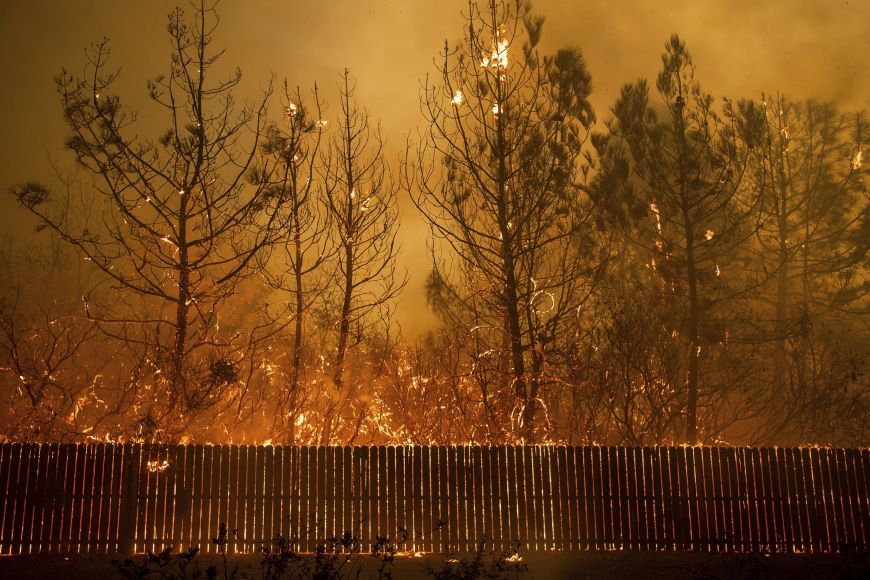
 back to all news
back to all news
BBC World News: Dean Jonathan Overpeck discusses the increasing impact of climate change on forest fires

On November 13, U-M School for Environment and Sustainability Dean Jonathan Overpeck appeared on BBC World News to discuss the increasing impact of climate change on forest fires in the US western states and around the globe.
Video courtesy of the BBC World News.
The interview:
BBC: Why are these fires appearing to get worse?
Overpeck: Well, you know the big dog in all of this is climate change. Temperatures are going up and as temperatures go up, the atmosphere demands more moisture -- it can hold more moisture. And as any gardener knows, on those hotter days plants will wilt if they don't get watered more. So the second factor is the rains aren't falling as they used to. We have these hotter temperatures and we have drier conditions. A lot of times we say that's hot drought or a hot flash drought. But either way it's making these forests extremely flammable.
BBC: So are you saying then that this could very well get worse?
Overpeck: Yeah, that's an important part about the whole climate change field of science. And like going to a doctor, when the doctor says 'we really understand what the cause is,' you can have a better idea what's coming next and in terms of climate change, it's going to get hotter and in many cases drier. And even in those situations where it isn't getting drier on average we're going to see more drought. And when those droughts occur they're going to be longer and more severe and therefore much worse for wildfire.
BBC: So, what can be done in the short term to lessen the risk right now?
Overpeck: There is more to it than climate change. Many of these forests wouldn't be a problem if people didn't live in them or adjacent to them. So, it's important for us to try and warn people when they're living in or adjacent to forests to take the necessary precautions. Furthermore, a lot of these forests naturally have burned. And so, one of the things we can do is start to manage the forest more aggressively to remove the finer fuels, the dead materials that make these fires get so large and out of control.
BBC: There doesn't seem much political appetite to tackle climate change. Is there anything that you see that might change that, very briefly?
Overpeck: The problem with climate change is that it's not really personal until it's personal. And wildfires are making it personal to a lot of people who live out west including myself and my family. You know we've been in situations where we've had fires nearby coming at us. We also have hurricanes and those are affecting a lot of people. Rising seas are affecting a lot of people so as we go forward more and more people are being affected. And we're all paying a cost. We're paying costs through insurance. We're paying a cost through government having to spend money, essentially for disaster relief. So, at some point we will reach a tipping point and there'll be demands for action.
BBC: Jonathan Overpeck, thank you very much for joining me.
Overpeck: My pleasure.

